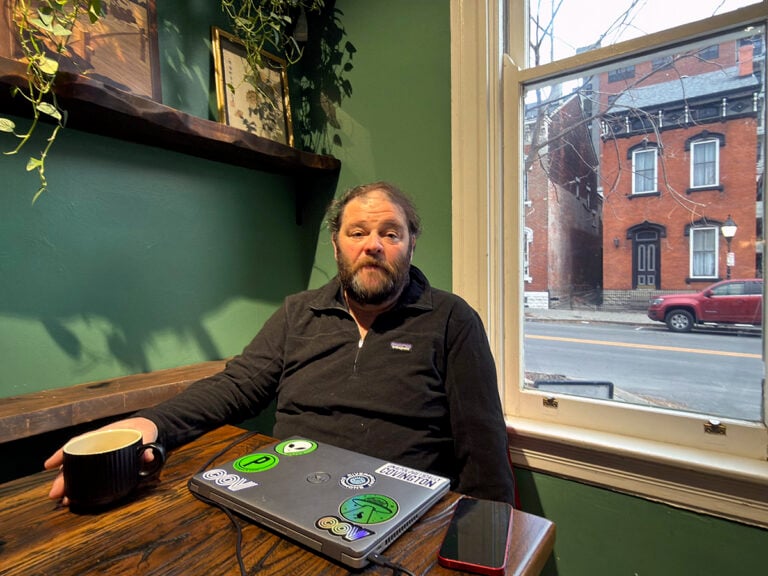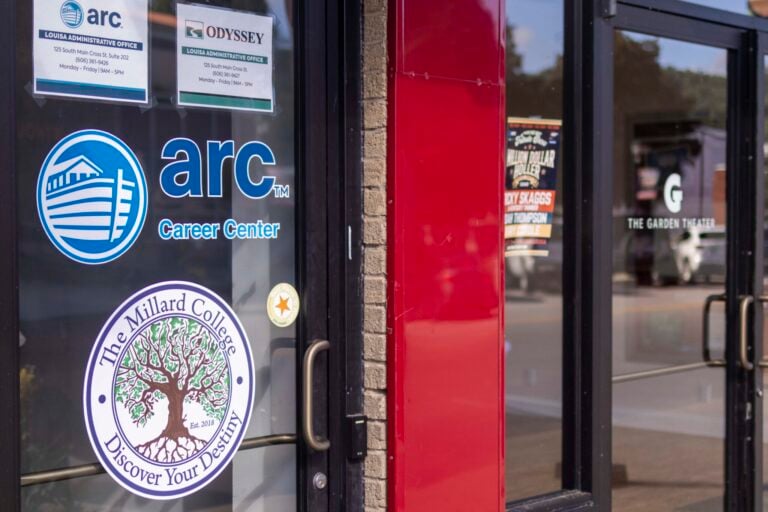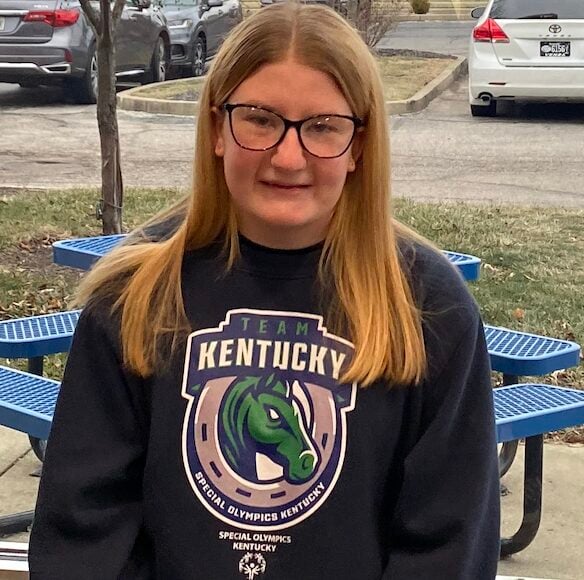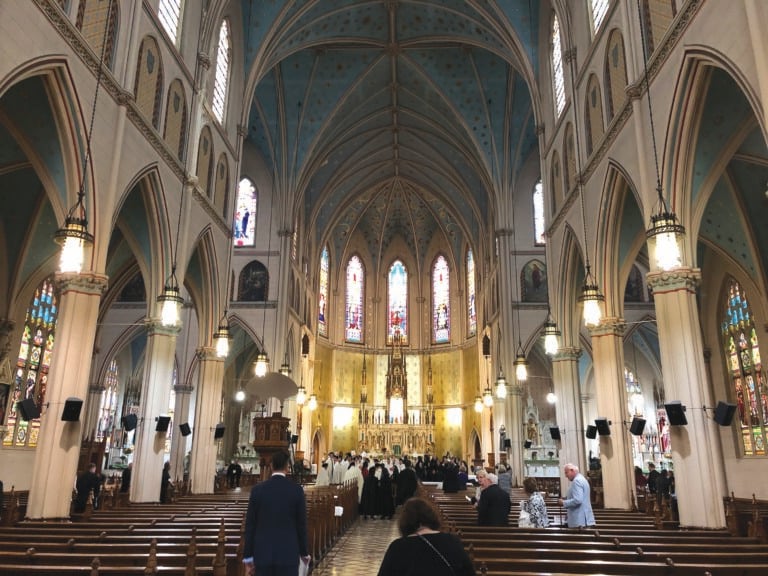By Deborah Yetter
Kentucky Lantern
Sallie Bingham, whose family owned the Louisville Courier Journal for nearly seven decades before its 1986 sale made national headlines, has died in New Mexico. She was 88.
Bingham, who grew up in Louisville amid the wealth and influence of one of the nation’s most prominent newspaper families, had lived in Sante Fe, New Mexico, since 1991 where she continued her work as a writer, philanthropist and supporter of women’s causes.
Bingham died last week at her home following a stroke, The New York Times reported.

She was one of three children of Barry Bingham Sr. and his wife, Mary, who in 1986 shared in ownership of the family media empire that included The Courier-Journal, a morning newspaper, its afternoon affiliate, the Louisville Times, WHAS TV, and radio stations and Standard Gravure, a printing company.
Bingham Sr.’s surprise announcement of the sale fractured the companies through sales to individual owners— the newspapers to current owner Gannet Co.— and the family, with Barry Bingham Jr., then publisher, calling the sale “a betrayal,” according to The New York Times.
But his sisters, Sallie Bingham and Eleanor Bingham were less critical.
Sallie Bingham called the sale ”a positive thing for Louisville, Kentucky and the family” and her sister said that it was ”a relief to get this very sad occasion past us,” according to The New York Times.
Keith Runyon, a former editorial page editor and book editor at the Courier Journal who retired in 2012, said Bingham’s network of connections in writing and publishing helped advance the quality of the newspapers’ book page.
“Sallie was one of the most gifted writers, discerning critics and disarming colleagues I’ve known in almost 60 years in journalism. I didn’t always agree with her judgments, but they always were provocative,” Runyon said in an email. “Under her direction, the book page was truly one of the best regional ones in the country, and she featured reviews by and about books by authors including Wendell Berry, Bobbie Ann Mason, Joy Bale Boone, John Filiatreau and Barbara Kingsolver.”
But Runyon said he disagreed with some of her views.
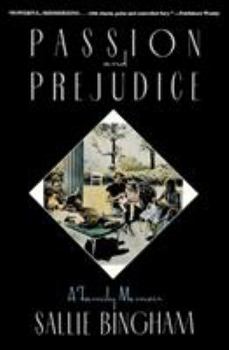
“I thought Sallie was wrong in saying that The Courier Journal was too conservative in the era prior to the sale, and I told her that. We were in fact national leaders in the promotion of women and minorities. But without question Sallie was a catalyst for the big change that came in 1986.”
Media watchers said Sallie Bingham’s criticism of her family’s management of the media companies — including over her removal from the board — and her proposed sale of her 15% share in the family-owned company, helped trigger the sale her father said was to end the family’s dispute over control.
But in an interview with the Kentucky Lantern last year, Sallie Bingham said she believed she was unfairly blamed for her role in the sale of the Bingham companies in the flurry of media coverage about the sale and several books that followed.
‘Scapegoating’
“Other books were prejudicial to me,” she said. “There was a good deal of scapegoating.”
In her 1989 book, “Passion and Prejudice: A Family Memoir,” Bingham said she sought to portray her version of the family history and conflict that led up to the sale.
It was not well-received by her family, Bingham said. Her mother particularly objected to her mention of the death of Mary Lily Kenan Flagler, the wealthy wife of Sallie Bingham’s grandfather, Robert Worth Bingham, who bought the Louisville newspapers aided by his new wife’s wealth.
She died in 1917, just months after the wedding and suspicions about her death circulated afterwards. She suffered from a heart condition and while the family had an autopsy performed, the results were never disclosed, according to a 2008 article in the National Library of Medicine.
Bingham described her book on her website.
“’Passion and Prejudice,’ somewhat unfortunately subtitled, ‘A Family Memoir’—a memoir no one in my family would accept—was published by Alfred A. Knopf to much criticism; as time passed, its virtues would begin to be apparent,” she wrote in a post on her website, SallieBingham.com.
In an interview this year with Santa Fe Magazine, Bingham said her mother was furious about the book and didn’t speak to her after its publication. Her father also cut off contact, she said.
But she defended her decision in the interview.
“As a committed writer, if I compromised and said, ‘All right. I’m not going to mention Mary Lily, I really would not be able to go on writing,” she said. “I really felt it was my whole career that was on the line.”
Bingham also wrote several other books, short stories and plays, according to her website.
A foundation and a feud
After the 1986 sale of the Louisville newspapers to the Gannett media chain for $300 million, Bingham used some of her share of the proceeds to establish the Kentucky Foundation for Women, a nonprofit meant to support women artists and writers.
In a piece on her website blog, Bingham said it was her time at the newspaper that inspired her to create the foundation.
“I was aware from my years as book editor at the Courier-Journal of the amount of work that women did at the Bingham companies; almost entirely in lower-paid jobs such as distributing mail, cooking and serving in the company cafeteria, working as secretaries or cleaning,” Bingham wrote. “These women were about to lose their jobs with the sale of the company.”
Bingham decided to create and endow a foundation that would support and help fund women artists working for social change.
Bingham served as the foundation’s first director from 1985 until her 1991 move to New Mexico.
Bingham, in an interview, said she relinquished management to the board and a new executive director.
“I felt it was better, since I was not going to be living in Kentucky, not to be hovering over the foundation,” she told the Lantern.
However, her relationship with the foundation fractured last year when she filed a lawsuit against it, arguing that its attempt to sell an eastern Jefferson County farmhouse it owned went against its mission.
Bingham, in establishing the foundation, said she envisioned the farmhouse and its 10-acre site – surrounded by a farm she owned and had designated as a conservation easement — as a secluded retreat for women artists.
“Creativity demands that women be allowed to retreat, at times, from their world and their obligations,” said her lawsuit. “Hopscotch provides the setting for such retreats.”
But the foundation argued the aging farmhouse needed extensive renovation and lacked amenities, such as city water service, and had only intermittent internet access — vital to contemporary artists. Its isolation also made some artists concerned about security, it said.
Bingham originally had purchased the farmhouse, which she named Hopscotch House, and donated it to the foundation.
The Kentucky Foundation for Women released a statement praising Bingham’s efforts to support women artists and effect social change.
“Our sincere condolences go to Sallies’ many friends and family,” it said. “As we celebrate KFW’s 40th anniversary, we will honor the life and work of our founder at our annual event in September 2025. Sallie’s impact on Kentucky and the arts will be felt for many generations to come.”
It’s unclear what will happen with the litigation following Bingham’s death. The case remains pending in federal court in Louisville. Bingham married and divorced three times, the Times reported.
In addition to a sister, Eleanor Bingham Miller, she is survived by two sons, Barry Ellsworth, a film producer and art gallerist, and Christopher Iovenko, a writer, and five grandchildren, according to The New York Times.
This story is reprinted from the Kentucky Lantern, a member of States Newsroom, the nation’s largest state-focused nonprofit news organization. It is republished under Creative Common license.









